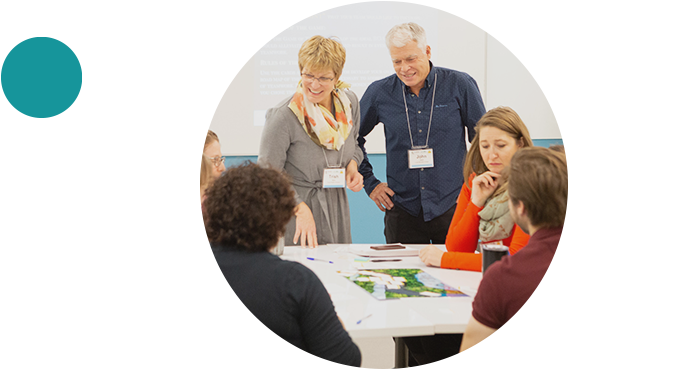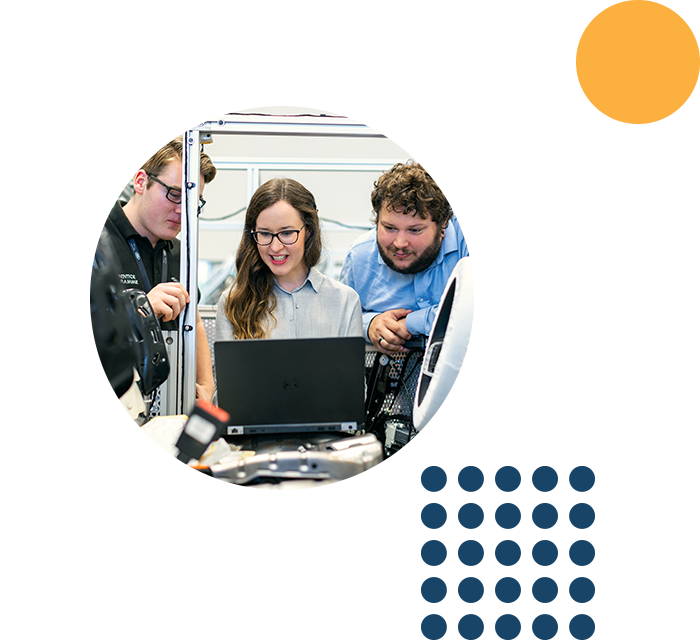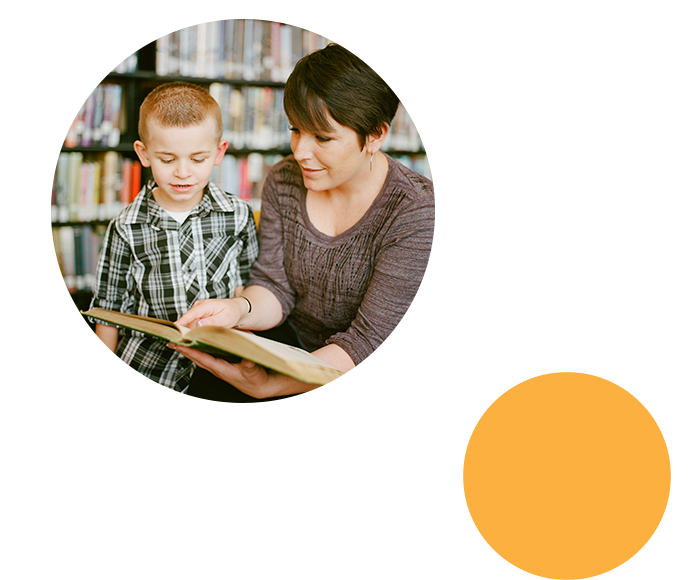Projects at BCcampus

Fostering Strategic Partnerships and Relationships
We work on a variety of short-term and multi-year projects through partnerships and agreements with government agencies, non-profit groups and associations, and B.C.’s post-secondary institutions, with a shared goal of improving learning and teaching experiences.
Micro-credentials
Micro-credentials are flexible, bite-sized, and competency-based pieces of learning. The aim is to help residents in B.C. who either need retraining to meet an industry skills gap, want to be recognized for skills they already have, or are learners with barriers.
The BCcampus Micro-credential Toolkit for B.C., by Annie Prud’homme-Généreux, was released in September 2023 and is available for download.
The toolkit, made possible through funding from the Ministry of Post-Secondary Education and Future Skills, consists of 19 standalone chapters, encompassing introductory material, implementation strategies, collaboration techniques, and learning design principles for micro-credentials — an innovative approach to competency-based learning. The toolkit was adapted from eCampusOntario’s Micro-credential Toolkit, and through consultation and collaboration now reflects a B.C.-specific micro-credential focus.
Embedded in this comprehensive resource is the Micro-credential Framework for B.C.’s Public Post-Secondary Education System. Additionally, the toolkit incorporates insights from over 30 stories originating from 12 B.C. institutions.

"I recently took the online Equity Sequence training online — offered free right now to post-secondary employees in British Columbia through BCcampus. I’ve been very involved in EDI learning, thinking, and initiatives during my career and this training goes to the top of my list in terms of how clear, simple, and immediately practical it is."
Equity Sequence Training: Building Equality Better
In collaboration with the Ministry of Post-Secondary Education and Future Skills, BCcampus extends complimentary limited access to the Equity Sequence training for people within the public post-secondary sector in B.C.
The Equity Sequence training is conducted through an interactive online platform incorporating gamified learning and community engagement. Participants access informative video content, engage in self-reflection and collaborative sharing within the community, and apply their new skills to case studies, ultimately integrating the Equity Sequence into their professional practices.
Health Care Assistant Program Provincial Curriculum and Supplement
Over the past year, BCcampus worked with the Ministry of Post-Secondary Education and Future Skills and sector partners to update the Health Care Assistant (HCA) Program Provincial Curriculum. The updated curriculum was published in Pressbooks in June 2023. The curriculum is reviewed every five years to ensure the content is up to date and aligned with the B.C. Health Care Assistants’ Core Competency Profile. With the curriculum completed, the supplement is being revised and is expected to be published in June 2024.


Access to Practical Nursing Curriculum and Practical Nursing Curriculum and Supplement
The Access to Practical Nursing Curriculum and the Practical Nursing Curriculum and Supplement are being revised and are expected to be published this year. Revisions to the curricula began in 2023. Proposed changes to the Access to Practical Nursing Curriculum and the Practical Nursing Curriculum, the result of engagement and research conducted by our subject matter experts, were published and will serve as a reference for the upcoming curriculum revisions. Once the curricula are released, revision and publication work will begin on the supplement materials. Reviews are scheduled every five years to ensure the content is aligned with the standards of practice and competencies as outlined by the British Columbia College of Nurses and Midwives.
Intersectional Sexualized Violence
In partnership with Women and Gender Equality (WAGE) and the Ministry of Post-Secondary Education and Future Skills, BCcampus is working with community members to develop new training resources and facilitation guides supporting Indigenous, international, and graduate students. We are also working on technology-facilitated sexualized violence (TFSV) resources. These resources will help post-secondary institutions support student populations, address systemic barriers, and develop a comprehensive response to sexualized violence using an intersectional approach.
In 2023, we conducted four environmental scans to identify existing resources and gaps in the B.C. post-secondary sector. The scans then informed the development of materials for graduate, international, and Indigenous students, along with TFSV resources.
The TFSV, graduate student, and international student resources will be piloted by Royal Roads University, North Island College, College of the Rockies, University of British Columbia – Okanagan, and Simon Fraser University from February to April 2024.

"We didn’t merely sit and absorb rote knowledge. Instead, we were invited to join rich discussions (many that were tender topics that challenged how we felt about ourselves and our role as educators) and meet amazingly talented speakers from our community. We absorbed knowledge through listening to stories by gifted storytellers, immersing ourselves into stories of our past, engaging body and mind while learning beadwork, all the while being surrounded by a strong sense of kinship."
Early Childhood Educator Professional Learning
Guided by the Ministry of Education and Child Care, BCcampus is contributing to the advancement of professional learning opportunities for early childhood educators. This has involved overseeing a series of calls for proposals, evaluating proposals, and allocating funds.
The calls for proposals aimed to address the demand for high-quality, accessible offerings for early childhood professionals, both in-person and online. There is a need to enhance the quality and accessibility of learning opportunities in the following key areas:
- Indigenous cultural competencies
- Child care in B.C.
- Early childhood educator practice in B.C.
In 2023, we issued the call for proposals, receiving 40 submissions and awarding 24 projects. The work is in progress, with some professional learning opportunities poised to evolve into open educational resources. In the coming year, we will monitor progress on this work and will publish a final report.
Early Years Professional Development — Deaf and Hard of Hearing
The Canada-British Columbia Canada-wide Early Learning and Child Care Agreement supports online professional learning opportunities for people who are Deaf or hard of hearing working in the field of early childhood development and for early childhood educators working with children who are Deaf or hard of hearing. The project’s goal is to ensure equitable and accessible learning opportunities.
BCcampus played a crucial role in this program, led by the Ministry of Education and Child Care. Our responsibilities include managing the call for proposals process, collaborating with the ministry to evaluate the proposals, and disbursing the funds. BCcampus implemented pilot projects in 2023 and released the final report in January 2024.

